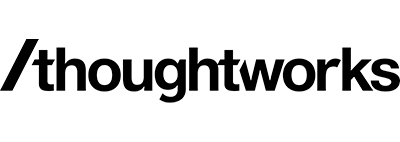In today’s rapidly evolving workplace technology landscape, organizations face a critical strategic decision: which generative AI platform will deliver the greatest value for their specific workforce, culture, and business objectives? The choice between implementing Gemini in Google Workspace or deploying ChatGPT Enterprise represents not merely a technology decision but a fundamental business strategy with far-reaching implications for organizational performance, employee experience, and competitive positioning.
However, most organizations make these consequential decisions based on limited information – vendor promises, isolated pilot programs, or executive preferences rather than comprehensive, objective data about actual usage patterns, productivity impacts, and return on investment across diverse teams and roles. This approach creates significant risk of suboptimal technology implementation, wasted resources, and missed opportunities for workforce transformation.
When organizations deploy the right AI tools to the right people at the right time, they unlock tremendous human potential. Employees experience reduced friction in their daily workflows, elimination of tedious tasks that drain creative energy, and enhanced ability to focus on high-value work that leverages uniquely human capabilities. This leads to greater job satisfaction, reduced burnout, and a more engaged workforce.
Furthermore, objective measurement enables organizations to identify where specific individuals or teams struggle with AI adoption, allowing for personalized training interventions, peer mentorship opportunities, and supportive resources that build digital confidence rather than anxiety. By understanding the human dimension of AI adoption, companies can foster cultures of continuous learning where technology enhances rather than threatens the employee experience.
The social dynamics of work are profoundly influenced by technology implementation. When organizations make AI deployment decisions based on comprehensive data, they can strategically reshape collaboration patterns, knowledge sharing behaviors, and communication flows to create more cohesive, innovative teams.
Objective insights about how different AI tools impact social interactions enable leaders to identify and address potential isolation risks, ensure equitable access to productivity enhancements, and prevent the formation of “technology haves and have-nots” within the organization. The right implementation approach can democratize access to capabilities that were previously available only to specialists, creating more balanced power dynamics and inclusive work environments.
The financial implications of choosing the optimal AI platform extend far beyond license costs. Organizations making data-informed decisions about AI implementation realize accelerated time-to-value, optimized resource allocation, and significantly higher returns on their technology investments.
By understanding precisely which platform delivers superior results for specific work contexts, companies can avoid the substantial hidden costs of poor implementation: abandoned licenses, reduced productivity during ineffective tool adoption, opportunity costs of delayed innovation, and competitive disadvantages from lagging behind in workforce augmentation. Concrete measurement transforms AI from a cost center to a strategic investment with quantifiable returns.
To navigate this complex decision landscape effectively, organizations require a sophisticated analytical approach that encompasses multiple dimensions of AI implementation:
Beyond simple login counts or activation metrics, organizations need granular visibility into how AI tools are being utilized across different teams, departments, organizational levels, and job functions. This detailed adoption mapping reveals patterns that would otherwise remain invisible: which roles find immediate value in AI capabilities, where adoption barriers persist despite access, and how usage patterns evolve over time as users develop greater proficiency.
With this insight, leaders can identify both successful implementation models to replicate and problematic areas requiring intervention, creating targeted strategies rather than one-size-fits-all approaches.
The binary distinction between “users” and “non-users” obscures critical nuances in how employees interact with AI technologies. Organizations need sophisticated segmentation capabilities that differentiate between various adoption profiles:
By understanding these behavioral patterns, companies can develop targeted interventions for each segment, addressing specific barriers and amplifying successful usage patterns.
While most organizations recognize the importance of the measurements outlined above, few possess the capabilities.
This is where Temporall delivers transformative value – we sit at the intersection of data, AI and behavioral analytics.
We provide comprehensive analytics and actionable insights for companies navigating these critical AI implementation decisions. Our platform enables a fundamentally new type of organizational intelligence—combining technical usage data, workplace activity patterns, and business outcome metrics to create a complete picture of how different AI platforms impact real work.
This intelligence powers evidence-based decision making about which platform (Gemini in Workspace or ChatGPT Enterprise) will deliver superior value for specific teams, use cases, and organizational contexts. Leaders can confidently deploy the right technology to the right people based on objective, comprehensive measurement.
The companies we partner with today are making decisions that extend far beyond immediate technology implementation. They’re reshaping their fundamental approach to work, laying the foundation for sustainable competitive advantage in an AI-augmented future, and creating workplaces where technology enhances rather than disrupts human potential.
Email: [email protected]
Sign-up to stay up-to-date on the latest news, insights and conversations around the digital workplace.
© 2024 All rights reserved
By filling out this form, you agree to our privacy policy.
Temporall Privacy Policy
Contact Temporall if you have any questions about our privacy policy.
Please ensure that your query is clear, particularly if it is a request for information about the data we hold about you.
Book a 30 minute Demo





Book a 30 minute Demo





Book a 30 minute Demo
Contact Temporall for a personalized demo and see how we transform your Workplace data into actionable productivity gains.




